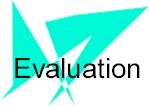





 A website created for families
who want to know more about the assessment process!
A website created for families
who want to know more about the assessment process!
|
|
|
Life After High School:
Helping
your child prepare for adult living and the world of work begins in the early
years of high school. Both you and
your child can do things that will help him/her succeed. It is important to know about your studentís knowledge of
careers, vocations, interests, skills, and his/her aptitude.
The tests and evaluations necessary to provide appropriate career and vocational programs require a team effort. General and special education teachers, along with vocational educators, and counselors make up a team of adults who collect the information necessary to help your child succeed the change from high school living to adult, community living. Some tests may require specialists in this area to obtain more detailed information. What
types
of tests will my child need to take?
There
are 3 main elements for preparing your child for additional schooling,
career education, or vocational training. 1.
Having
general knowledge, basic academic
skills, and physical abilities that 2.
The
family, community, and school
will need to work together to structure 3.
Finding
the right skills for the job the student is seeking.
What
are the tests that can be used to meet these needs?
Who else is involved with my childís career placement? Career
and job testing and programming must take into account the school, home, and
community of students.
Programs
need to be coordinated with services for disability areas. Regular
education teachers, special education teachers, and vocational Options
such as trade schools and colleges are available. What
about college assessment? Personal
social goals that were set in the Individual Education Plan (IEP) should be
extended into this time period.
What
is Vocational Rehabilitation? As a parent of a 9th grader, what can my child and I do? As a parent of a 10th grader, what can my child and I do? As a parent of a 11th grader, what can my child and I do? As a parent of a 12th grader, what can my child and I do? The
following agency representatives are happy to attend Individual Educational
Plans whenever possible. They must
be invited to meetings starting at age 16 and up with a signed Project
Transition Release on file. Students
must have a release on file before an agency representative can be invited to
the meeting. Who
can I contacts if I am a Lee County parent?
What
Links and Agencies are
available for support?
|
|
|
Home | Background|
Pre-K | Elementary | Secondary
| Post-Secondary
|